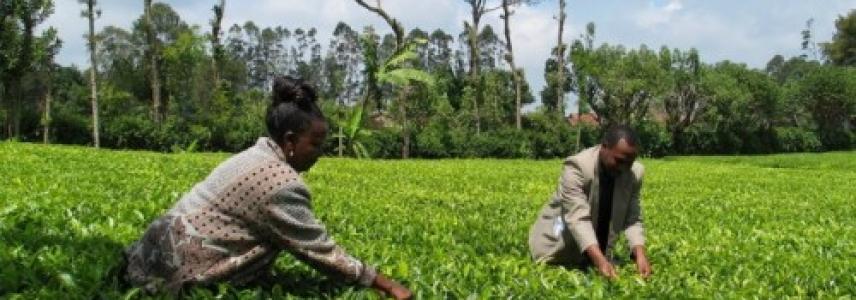CBI programmes show the effectiveness of its new integrated approach

The Policy and Operations Evaluation Department (IOB) of the Netherlands’ Ministry of Foreign Affairs recently published the findings of an evaluation of CBI’s performance between 2005 and 2012. The evaluation made some critical observations, as well as a number of recommendations. However, in 2012 CBI adopted a new way of working that addressed many of the evaluation’s criticisms and even started implementing its recommendations. CBI programmes in Africa, Asia and Latin America are already illustrating its positive effects.
Separate projects
Until 2012 CBI developed and implemented separate projects for exporters and Business Support Organisations (BSOs), explains Patrick Gouka, CBI programme manager for Africa. “Since the beginning of 2012, CBI has focused on selected potential export sectors and exporters, and relevant supporters and facilitators in the export value chain.”
Value-added teas
CBI’s activities in the Kenyan tea sector illustrate the success of its new approach, continues Gouka. The challenge facing Kenya, the world’s biggest producer and exporter of black CTC, was how to produce, diversify, market and export value-added teas to the demanding European market. CBI’s answer, the heart of its new integrated approach, was to bring on board all actors, supporters and facilitators in the tea value chain. This included coaching a select group of potential producers/exporters, developing the capacity of BSOs, producing tailored market intelligence and involving importers.
Higher profitability
“By focusing on packing at source and providing specialty teas for regional and EU markets, CBI currently supports 12 exporters of value-added tea in Kenya,” says Gouka. “The Kenyan government, and stakeholders in the tea sector, are embracing this concept of reducing bulk sales and concentrating instead on the higher profitability of value-added products.”
Better prepared
Hugo Verhoeven, CBI’s Region Manager for Asia agrees that since 2012 CBI’s programmes have become better prepared and much more integrated. Programmes are now developed with pitches they are business-case oriented and the value chain plays a much greater role. An example, he explains, is a four-year integrated garments programme CBI has just started implementing in Bangladesh. Because Bangladesh operates mainly in the mass-volume lower end of the market with small margins, the CBI programme supports the sector with market-segment diversification by moving into higher EU market segments. “Some 30 carefully selected exporters will receive intensive coaching by CBI experts in areas that include export marketing, management, product development, CSR compliance and production efficiency,” says Verhoeven.
Improved image
Later, these companies will exhibit in European trade fairs where they can establish contacts with higher segment buyers. “There is also cooperation with sector association BGMEA, which represents around 5,000 factories in Bangladesh. The aim is to improve the service BGMEA offers its members, as well as Bangladesh’s image as a source of high-value products and a country that’s taking serious steps to improve its CSR compliance.”
Clear agreements
In Latin America, practically all CBI programmes are now executed jointly with local partners, rather than just CBI, says Erik Plaisier, CBI programme manager for Latin America. Clear agreements are made with local partners about everyone’s role, responsibilities and investments. This makes it possible for CBI to draw on a much wider range of competencies, resources, and contacts to address identified bottlenecks in the value chains. All CBI’s competencies, from market research to export training, coaching, matchmaking and institutional development are combined and deployed in an integrated way to firmly position selected sectors in the European market.
Strategy
By way of example Plaisier offers a cacao and chocolate project in Peru. “Apart from ‘traditional’ export coaching to the six participating companies and producer groups, we work closely with Peru’s national Trade Promotion Organisation Promperu in designing and rolling out a strategy that will uniformly promote the Peruvian cacao sector. We will also develop and roll out training for Peru’s trade promotion officers in Europe on how best to promote their fine flavour cacao and chocolate in the European market.”
Vastly different
At the other end of the value chain, concludes Plaisier, CBI is assisting Peru’s Ministry of Agriculture in developing a programme to monitor and reduce the presence of heavy metals in Peruvian cacao, to comply with EU standards and protect Peru’s image abroad. And with the sector association Appcacao, CBI is helping to train its professional cacao tasters and to develop a professional cacao tasting service for Peruvian cacao and chocolate producers. “This integrated way of working is vastly different to how we used to do it in the past.”